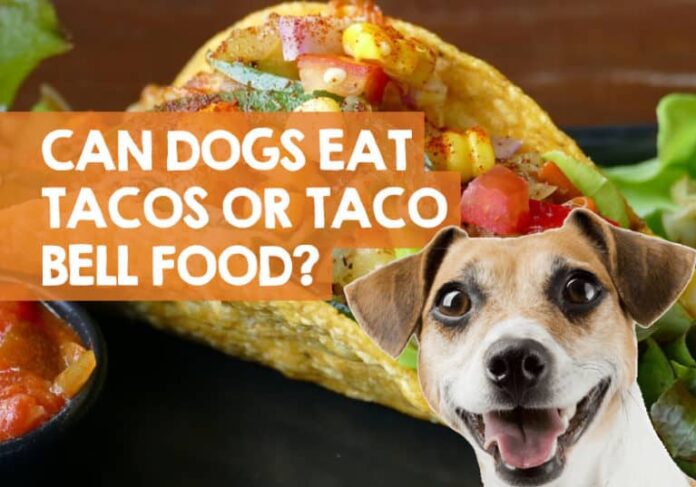Hey there, fellow pet parents! Ever caught your pup giving you those irresistible puppy eyes while you’re munching on Taco Tuesday? I totally get it – we’ve all been there! Today, let’s dive deep into the burning question can our four-legged friends safely enjoy tacos?
The Quick Answer
TL;DR While dogs can technically eat some taco ingredients, complete tacos aren’t really the best choice for your furry friend. But don’t worry – I’ll show you how to make dog-friendly versions!
Breaking Down Taco Ingredients: The Good, The Bad, and The Ugly
Safe Ingredients Your Dog Can Enjoy
- Plain Cooked Ground Beef
- Lean meat without seasonings
- Good source of protein
- Should be well-cooked and drained of excess fat
- Plain Shredded Lettuce
- Low-calorie treat
- Good source of fiber
- Must be thoroughly washed
- Plain Cooked Chicken
- Excellent protein source
- Should be skinless and unseasoned
- Must be fully cooked
Potentially Dangerous Ingredients
- Taco Seasoning
- Contains harmful ingredients like:
- Onion powder
- Garlic powder
- High sodium levels
- Spicy components
- Taco Shells
- Deep-fried shells = too much fat
- Can be a choking hazard
- Often too salty
- May contain preservatives
- Common Taco Toppings to Avoid
- Onions (super toxic!)
- Garlic (big no-no)
- Hot sauce (can cause tummy troubles)
- Cheese (many dogs are lactose intolerant)
- Sour cream (too fatty)
What Happens If Your Dog Eats a Taco?
If your furry friend managed to snag a taco when you weren’t looking, here’s what might happen:
- Best Case Scenario
- Minor digestive upset
- Temporary diarrhea
- Mild discomfort
- Worst Case Scenario
- Severe vomiting
- Pancreatitis (from fatty ingredients)
- Dehydration
- Need for emergency vet visit
How to Make Dog-Friendly “Tacos”
Wanna treat your pup? Try these safer alternatives
Recipe #1: Puppy Taco Bowl
- Plain cooked ground beef (lean)
- Chopped carrots
- Small amount of plain rice
- Diced cucumber
Recipe #2: Chicken Taco Alternative
- Boiled, shredded chicken
- Sweet potato chunks
- Green beans
- Plain yogurt (if your dog tolerates dairy)
Signs Your Dog Needs Vet Attention After Eating Tacos
Watch out for these symptoms:- Excessive vomiting- Severe diarrhea- Lethargy- Loss of appetite- Unusual behavior- Bloating or abdominal pain
Prevention Tips to Keep Your Dog Safe
- Kitchen Safety
- Keep tacos out of reach
- Don’t leave food unattended
- Secure trash cans
- Training
- Teach “leave it” command
- Establish boundaries during meal times
- Reward good behavior
FAQ About Dogs and Tacos
Q: Can my dog eat just one bite of taco?A: While one bite probably won’t cause serious harm, it’s better to avoid it altogether due to seasonings and potentially harmful ingredients.
Q: What should I do if my dog ate a whole taco?A: Monitor them closely for 24-48 hours. Contact your vet if you notice any concerning symptoms.
Q: Are there any taco ingredients that are completely safe?A: Plain, cooked meat (without seasonings) and some veggies like lettuce are generally safe in moderation.
The Bottom Line
While sharing food with our furry friends is tempting, regular tacos aren’t the best choice for dogs. Instead, stick to dog-friendly alternatives or their regular food. Remember, every dog is different – what might be fine for one pup could cause problems for another.
If you’re ever unsure about what your dog can eat, it’s always better to err on the side of caution and check with your vet first. They know your pet’s specific health needs and can give you the best advice.
Quick Tips to Remember
- Keep human tacos for humans
- Make dog-friendly versions instead
- When in doubt, leave it out
- Always have your vet’s number handy
- Prevention is better than cure!
And there ya have it, folks! Next time your pup gives you those begging eyes during taco time, you’ll know exactly what to do (and what not to do). Stay safe and happy snacking!
Disclaimer: This article is for informational purposes only and isn’t meant to replace professional veterinary advice. Always consult your vet before making changes to your dog’s diet.












